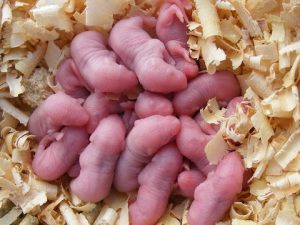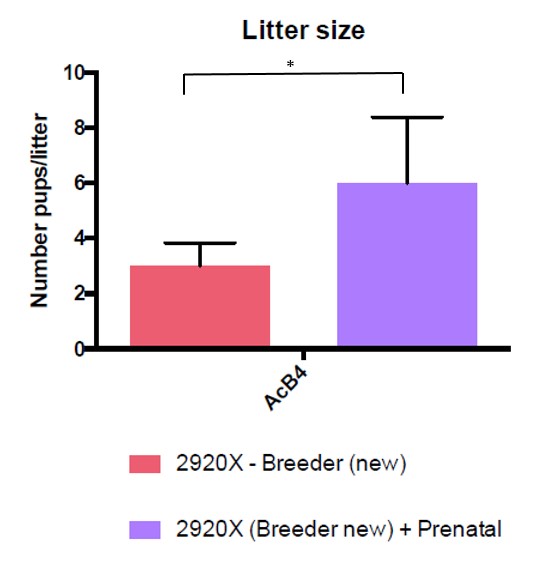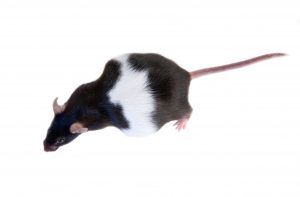

McGill University Health Center Observes Improved Breeding Performance With DietGel® Prenatal
Mouse breeding performance can vary according to strain and dietary needs. By following some careful rules, such as reducing stressors and providing healthy nutrition (see our article Breeding Laboratory Mice), you can increase the welfare of your colonies and improve breeding performances. Identifying an easy-to-use dietary supplement, that could help mouse strains with breeding difficulties, was Veronica Sandy’s goal when starting to use ClearH2O’s DietGel® Prenatal, when it was introduced to the market in 2017.
A Motivated Team at RI-MUHC
Veronica Sandy, Animal Health Technician at the Research Institute of the McGill University Health Center (RI-MUHC) in Montreal, since 2000, has recently been working with ClearH2O products for the colonies of mice she oversees, under the supervision of Aurore Dodelet-Devillers, DVM and Clinical Veterinarian since 2016 at RI-MUHC. Veronica Sandy has been working for the Transgenic Core since 2017, where she helps breed very difficult strains.
Effect of DietGel® Prenatal on Breeding Performance
Research animals at the RI-MUHC are commonly fed Teklad’s rodent diets 2918 (irradiated, non-extruded) or 2920X (irradiated, extruded). Both of these diets are designed to support gestation and lactation of rodents. In their study, Veronica Sandy and Aurore Dodelet-Devillers compared the frequency of litters, litter size, and weaned body weight of various mouse strains on various backgrounds (YFP-SCID, NOD-SCID-Gamma, ACB4 recombinant congenic) that were known to be difficult breeders. Mice supplemented with DietGel® Prenatal were compared to mice in standard husbandry conditions for a period of 6 months.

The data showed a significant increase in litter size in ACB4 recombinant congenic strain supplemented with DietGel® Prenatal, and an increased trend in frequency of litters for all strains studied. Veronica Sandy and Aurore Dodelet-Devillers now recommend DietGel® Prenatal for strains with known breeding difficulties to improve breeding performance. These data were presented at The Canadian Association for Laboratory Animal Science Symposium in Vancouver, BC in May 2019, and the Congrès Régional des Animaux de Laboratoire in Quebec City in June 2019. See the full poster.
For more information on breeding colony management, download our Best Practices for Rodent Colony Planning, Breeding Support, and Pup Health Guide. To try our products first hand, Request a Sample.

